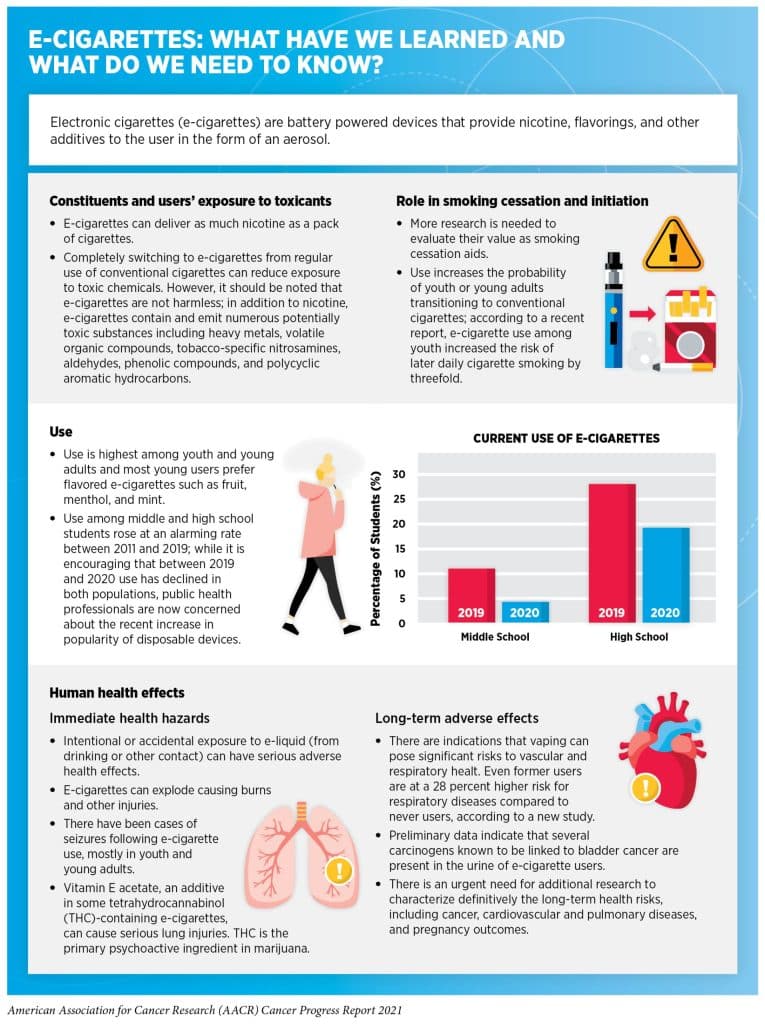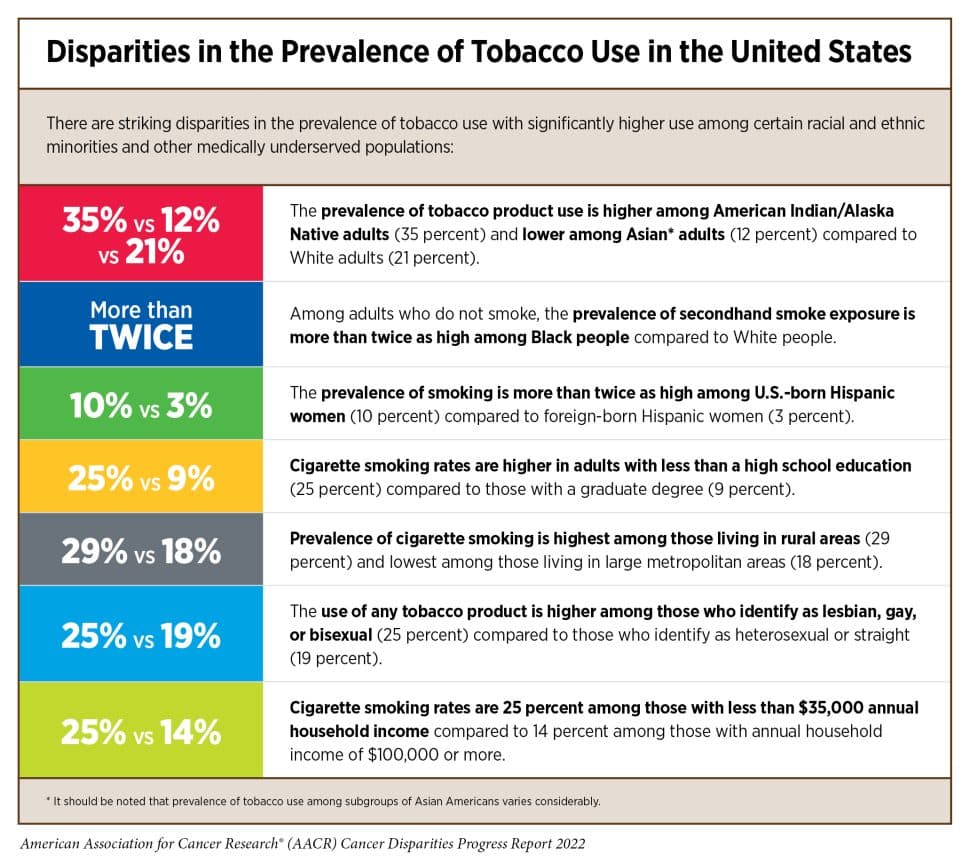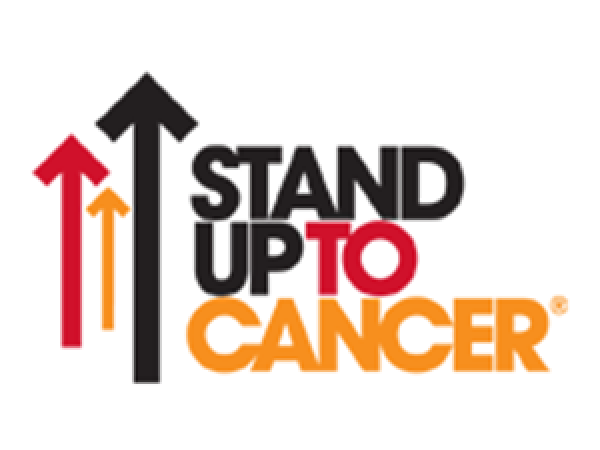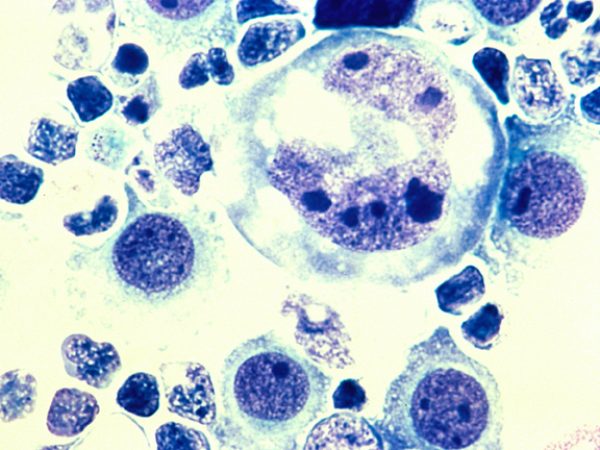Supporting Tobacco Cessation on World Lung Cancer Day—and Beyond
The U.S. Centers for Disease Control and Prevention (CDC) estimate that 80 to 90 percent of deaths from lung cancer are linked to cigarette smoking, and that smoking increases lung cancer risk by 15- to 30-fold.
It is therefore timely that, in the weeks leading up to World Lung Cancer Day (August 1), the U.S. government has taken novel steps to help decrease tobacco use nationwide.
On April 28, the U.S. Food and Drug Administration (FDA) proposed a new rule that would prohibit the sale of menthol-flavored cigarettes and flavored cigars. Menthol—a cooling agent that helps mask the discomfort and harsh taste of cigarettes—has been shown to increase smoking initiation, decrease cessation, and alter how nicotine interacts with the brain. Because use of menthol cigarettes is disproportionately common among youth, young adults, and African Americans, authorities hope the ban, if enacted, will decrease smoking initiation and help ameliorate racial disparities in diseases such as lung cancer.
Additionally, on June 23, the FDA denied market authorization to e-cigarette products made by Juul, the nation’s largest e-cigarette distributor. The FDA currently authorizes e-cigarettes only if applicants can demonstrate that their products will help protect public health, such as by helping adults quit traditional cigarettes. According to the FDA, Juul failed to provide sufficient evidence of its potential benefits. Instead, data suggest that Juul contributed to the significantly increased use of e-cigarettes by youth between 2017 and 2019. Further, the FDA’s review found conflicting data about the potentially toxic contents of Juul’s pods—the cartridges containing the liquid vaporized by the e-cigarette device.
While the FDA has since issued an administrative stay on the order to remove Juul products from shelves while the agency conducts further review, the stay is temporary, and the FDA has not rescinded their order. In the meantime, Juul is allowed to continue selling its products.
The American Association for Cancer Research (AACR) has applauded these measures for their potential impacts on cancer incidence and mortality. Here are some additional ways the AACR is working to promote tobacco cessation.
Advocating for Change
The AACR’s Office of Science Policy and Government Affairs has consistently lobbied in support of legislation aimed at decreasing tobacco dependence and initiation of tobacco use. The Office’s Tobacco Products and Cancer Subcommittee—a group of expert scientific advisers working in the fields of lung cancer, nicotine addiction, and tobacco cessation—has helped draft several policy statements regarding proposed FDA regulations.
While a ban on menthol cigarettes has been a topic of debate since the U.S. Congress banned all other cigarette flavors in 2009, the AACR has long supported the prohibition of menthol-containing tobacco products. In 2013, the organization joined a citizen petition advocating for the removal of menthol cigarettes from the market, which was the catalyst for the FDA proposing the current draft rule. It has since partnered with several other national organizations to submit additional letters urging for a ban on menthol, including statements issued in 2018, 2020, and 2021.
The AACR has also supported stronger oversight for e-cigarettes, as evidenced by a 2014 statement outlining suggested regulations on e-cigarettes and other tobacco products, as well as a 2019 commentary about youth tobacco use.
In addition to letters addressed to government agencies, the AACR has issued public statements in support of such tobacco cessation efforts.
“The AACR strongly supports the development of evidence-based tobacco control policies aimed at reducing the burden of death and disease caused by tobacco use, which is the leading preventable cause of death in the United States and around the world,” said Margaret Foti, PhD, MD (hc), chief executive officer of AACR, in a press release applauding the proposed ban on menthol cigarettes.
Foti and other AACR leaders also publicly commented on the removal of Juul products from U.S. markets. “The FDA’s important decision to remove these products from the market is a major step in addressing the youth e-cigarette epidemic that has threatened to reverse years of progress in the reduction of tobacco use,” Foti said in a press release.
Distributing Information
Another primary goal of the AACR’s efforts to decrease the prevalence of tobacco use is to inform policymakers, the media, and the public of the links between tobacco and cancer. While most people are aware that smoking is intimately linked with lung cancer, it is less known that smoking increases the risk of 17 other types of cancer, including ovarian cancer, pancreatic cancer, and acute myeloid leukemia.
The AACR Cancer Progress Report 2021 featured a section detailing the ways in which tobacco use can cause cancer, statistics on the prevalence of smoking over time, and successful interventions to help people quit. According to the report, most tobacco users begin smoking as adolescents or young adults, and about 4.5 million middle and high school students used tobacco products in 2020. Among this population, flavored e-cigarettes have been the most common source of tobacco since 2014.

Tobacco use also featured prominently in the AACR Cancer Disparities Progress Report 2022, which explained that significant disparities exist in how tobacco impacts different racial, ethnic, and socioeconomic groups. Alaska Native and American Indian adults have a higher prevalence of tobacco use than all other racial and ethnic groups. Black Americans have a significantly increased risk of lung cancer, and Black, Hispanic, and Alaska Native/American Indian individuals are less likely to receive or successfully complete evidence-based smoking cessation interventions.
The report suggested menthol-containing products as a significant contributor to some of these disparities. Black Americans and individuals from low-income communities use menthol cigarettes at significantly higher rates than their white and high-income counterparts, and they are more likely to be targeted by advertisements for menthol cigarettes.

In addition to public-facing reports, the AACR provides outlets, such as conferences and journals, for scientists to share research with each other. During the AACR Annual Meeting 2022, held in New Orleans April 8-13, the Tobacco Products and Cancer Subcommittee hosted a session on supporting tobacco cessation among cancer patients. The editors of the AACR journals have also assembled a collection of articles, published in Cancer Prevention Research and Cancer Epidemiology, Biomarkers, & Prevention, that describe the effects of e-cigarettes on organ function and cancer risk.
By consolidating this research and presenting it to scientists, federal lawmakers, and the public, the AACR helps make the case for policies such as the proposed menthol ban.
Supporting Researchers
Interventions such as policies aimed at tobacco cessation, evidence-based quitting strategies, and new therapies for lung cancer patients are made possible by scientific research into these topics. In addition to producing journals and conferences in which researchers can disseminate their data, AACR provides grant funding to researchers working in a variety of areas, including tobacco-related cancers.
In particular, the AACR-Johnson & Johnson Lung Cancer Innovation Science Grants fund teams of lung cancer researchers working across multiple institutions to improve lung cancer detection, interception, or treatment.
In 2019 and 2020, the funding committee prioritized projects related to biological and behavioral biomarkers for smoking cessation. One project aims to expand upon previous research that identified a pattern of reward sensitivity, visible on an electroencephalogram (EEG), that was associated with the likelihood of smoking cessation. The researchers hope to establish genetic biomarkers of reward sensitivity, withdrawal symptoms, response to medication, and other parameters that may help individualize treatment for smoking cessation.
Another funded project seeks to develop and test an interactive smoking cessation program targeted to adults at a high risk for smoking-related lung cancer. The proposed program would include cessation skills delivered via phone and video, as well as information about lung cancer screening.
By supporting translational research that may help decrease smoking incidence, informing the public of how smoking affects cancer development in diverse communities, and advocating for policy change, the AACR demonstrates a strong commitment to preventing tobacco-related cancers. For more information, resources, and upcoming events, check out our Tobacco Products and Cancer webpage.



